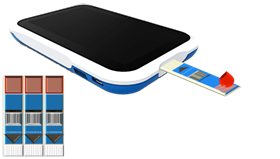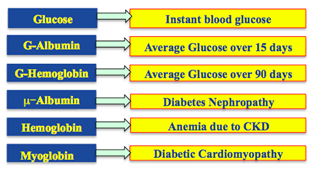The groups led by Prof. Manoj Varma and Prof. Ambarish Ghosh have developed a Diffractive Interference Optical Analyzer (DiOpter) for sensitive refractive index sensing, and three dimensional porous plasmonic substrates for Surface Enhanced Raman Scattering (SERS) respectively. They are currently exploring the development of applications and commercialization of these technologies in areas pertaining to bio-medicine. More information on these projects pertaining to optical bio-sensing can be found in the photonics page.
Diabetes, primarily a lifestyle disease, has emerged as a global epidemic. Based on a 2013 survey, close to 400 million people were affected globally, and India had a substantial chunk of 65 million diabetic people. Prof. Navakanta Bhat’s group has focussed on the development of a suite of electrochemical bio-sensors for the management of diabetes and its complications. This includes novel electrochemical sensors for glycated Albumin, glycated Haemoglobin, Microalbminuria, Albumin to Creatinin Ration (ACR). The vision is to develop accessible point of care solutions, with a single hand held device capable of measuring a range of bio markers. The group has already filed for 7 patent disclosures, and is in the process of commercializing the technology through a start-up to be incubated at IISc. In future, Prof. Bhat’s group plans to develop sensors for very early detection of both Type 1 and Type 2 diabetes, and other complications of Diabetes.


In addition to the thrust on Diabtes, Prof. Bhat’s group is also developing a range of electrical biosensors using Nanotransistor and ISFET platform exploiting novel materials such as graphene, transistion metal dichalcogenides and metals oxides. An example is graphene based E-coli sensor developed on low cost plastic substrate.
|
Professor |
Professor |
Assistant Professor |